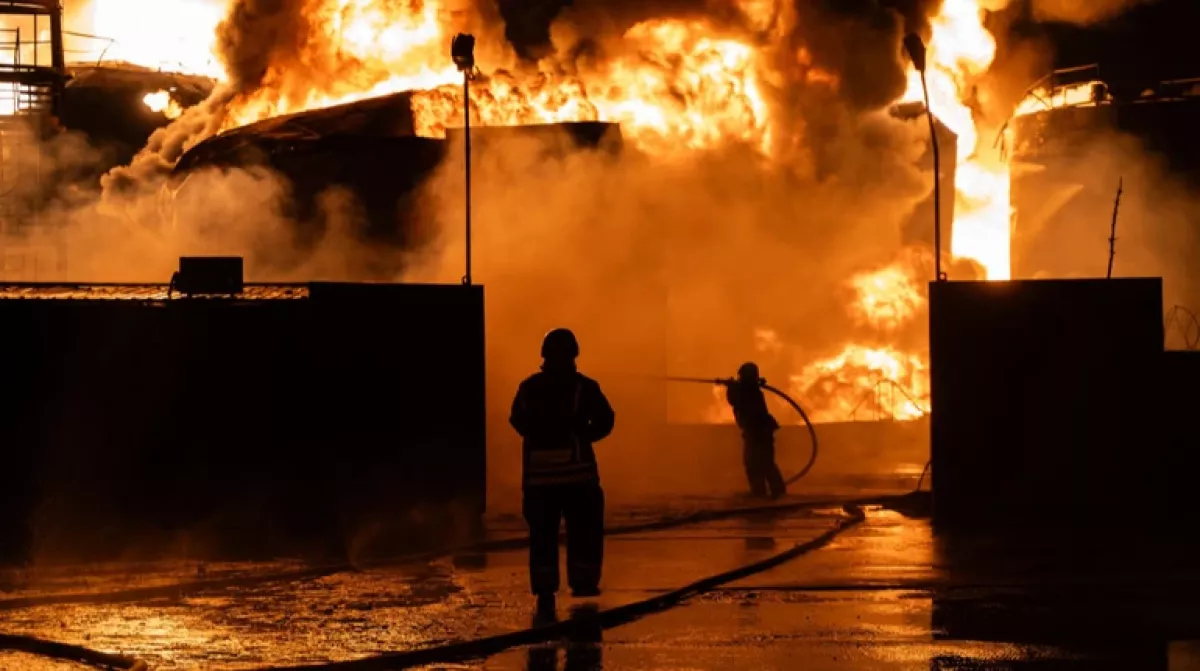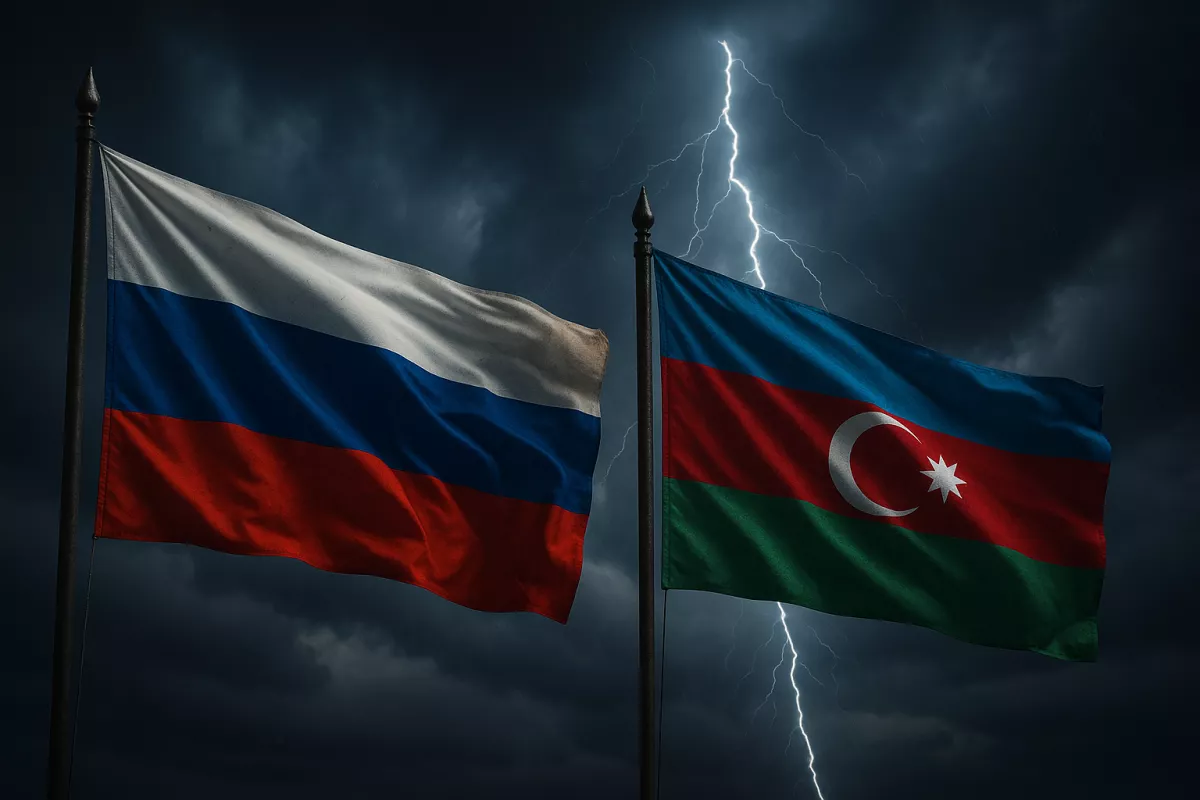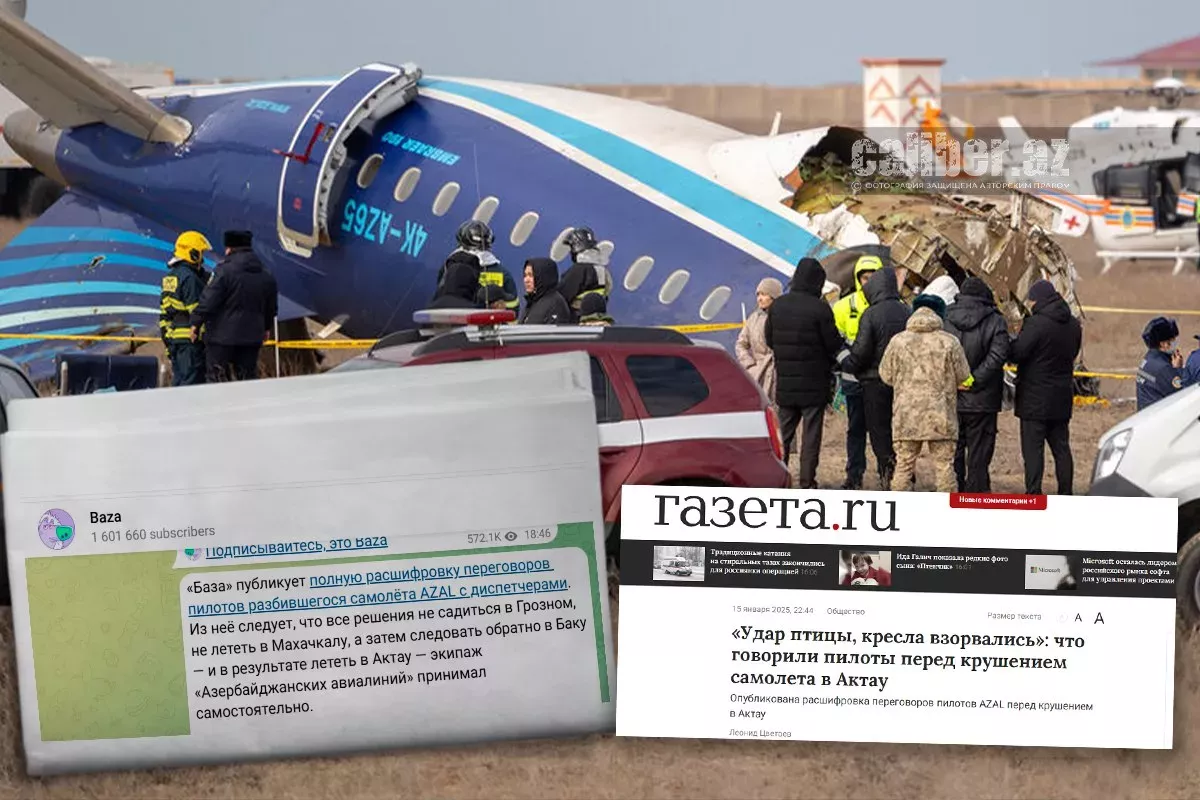Moscow expands pressure on Baku After the plane and diaspora, oil and gas are under attack
Let me begin by noting the obvious symbolism in the place and moment this article is being written. I am returning from Baku to Kyiv, travelling through Moldova. I had just entered the Odesa region when the news broke of yet another act of terror by Russia against both Ukraine and Azerbaijan. The date of the attack is symbolic as well. Exactly 17 years ago, in defiance of international law, Russia launched a war against Georgia, after which Moscow recognised the “independence” of the Tskhinvali region and Abkhazia. This was a continuation of the Kremlin’s monstrous and bloody policy towards the former Soviet republics, whose independence Russia simply cannot forgive.
It is worth recalling that since the start of Russia’s full-scale war against Ukraine, Baku has maintained a balanced position, avoiding direct involvement in the armed conflict, while actively developing energy cooperation with Europe and Kyiv. However, recent events have shown that Moscow has moved to open coercive pressure on Azerbaijan, including strikes on its infrastructure beyond its borders. The night of 7–8 August 2025 was another alarming signal: Russian forces attacked an oil depot of the Azerbaijani company SOCAR in Ukraine’s Odesa region. According to Ukrainian law enforcement, Russia sent five Shahed attack drones at the SOCAR oil depot, sparking a fire and damaging a diesel pipeline. Four company employees were seriously injured.

This is already the second attack in recent weeks on facilities in Ukraine linked to Azerbaijan. Earlier, a gas distribution station near Orlivka — a key component of the Trans-Balkan Gas Pipeline, through which Azerbaijani gas has begun to flow to Ukraine — was targeted.
It should be emphasised that from the moment Ukraine received its first cubic metres of Azerbaijani gas via the Trans-Balkan Corridor on 28 July 2025, Russian propaganda outlets began openly calling SOCAR’s infrastructure a “legitimate target.” Particularly telling was the comment by prominent Kremlin mouthpiece Ruslan Ostashko, who declared that the strike on Orlivka was “a signal to Baku about the inadmissibility of energy cooperation with the West bypassing Russia.”
Thus, the strikes on Azerbaijani facilities in Ukraine are not a military necessity, but a tool of political pressure. Moscow is openly demonstrating that it sees Azerbaijan’s energy and political independence as a threat to its regional dominance.
The reasons for Russia’s aggression, however, are multilayered. It is evident that the restoration of Azerbaijan’s territorial integrity took place contrary to the Kremlin’s strategic designs for the South Caucasus. It is equally clear that Baku’s growing role in Europe’s energy security — especially against the backdrop of the EU’s decreasing dependence on Russian gas — drives many in the Kremlin to outright fury. Adding to this is the looming prospect of a possible peace agreement between Azerbaijan and Armenia being initialled in Washington, which would finally deprive Russia of its levers of influence in the region. All these factors together create in Moscow a motive for a systematic campaign of pressure on Azerbaijan, including through coercive and informational means.

Russian media and Telegram channels are systematically publishing materials filled with lies and hatred towards Azerbaijan. Propagandists, including Ostashko, Mardan, and Solovyov, are effectively voicing the Kremlin’s talking points, stoking hostility and preparing the ground for further provocations — which have already taken place. On multiple occasions during the war, explosions and shelling have occurred in the immediate vicinity of Azerbaijan’s embassy in Kyiv. Given the current escalation, it cannot be ruled out that the next strike could target the country’s diplomatic mission. Russian propagandists are already publicly gloating over the attacks on Azerbaijani facilities in Ukraine, which only heightens the risk.
Indeed, Russia no longer hides its hostility towards Azerbaijan. It is evident that the strikes on SOCAR facilities in Ukraine are part of political retribution for Baku’s independent and successful foreign policy, its contribution to Europe’s energy security, and its steps towards peace in the South Caucasus — all of which undermine the Kremlin’s imperial designs.

The downing of the Azerbaijani aircraft and the recent events in Yekaterinburg are not isolated incidents but logical links in the same chain. They reflect the essence of Moscow’s political practice, in which coercive pressure and demonstrative aggression remain the main tools of engagement with the outside world. The criminal actions committed by Russia against the brotherly Ukrainian people only confirm that a similar policy towards other states and nations is not an exception but a consistent and deliberate course.
Nevertheless, today Russia finds itself in a position that can hardly be described as anything other than humiliating and disgraceful. After Armenia, it has become the second aggressor state in the post-Soviet space — a status that has taken root not only in the perception of its neighbours but also in their political decisions. One after another, the post-Soviet republics are turning away from Moscow, seeing in its actions a threat rather than a guarantee of security. The anniversary of the war against Georgia, mentioned at the outset, serves as a reminder that this aggressive model has deep roots, while the current dynamics show that tolerance for it is rapidly running out. Even structures that the Kremlin for many years regarded as pillars of its influence are undergoing an effective collapse. For example, the CIS, once touted as a “common home,” is falling apart before our eyes: Moldova has withdrawn from it, and Azerbaijan consistently ignores its events — notably, Deputy Prime Minister Yagub Eyubov demonstratively skipped a meeting of the CIS Economic Council.
These are not isolated gestures but markers of a broader process — the loss of Russia’s role as a regional centre of gravity. In these circumstances, Moscow must abandon its predatory policy of pressure and recognise the obvious: the era of diktat and coercion is passing into history. Russia will not succeed in intimidating Azerbaijan. Baku acts firmly and consistently, defending its interests at all levels and in all arenas.








